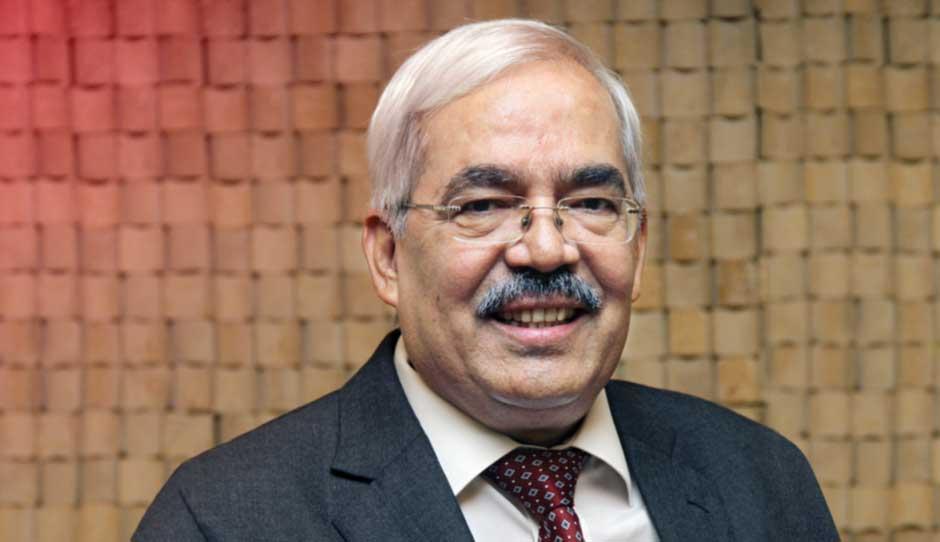A Daily Dose of Leadership
- BY Shreyasi Singh
 In Innovation
In Innovation 11043
11043 0
0

In terms of revenue, Bliss GVS Pharma grew nearly 100 times over nine years; expanding from annual sales of Rs 4.61 crores in 2004-05 to closing 2013-14 with Rs 318crore. This astounding success, Shibroor Narsimha Kamath, the company’s managing director, claims has been possible because of their focus at expanding the company’s global presence, and continually adding new products incubated in their research labs. The success, and the company’s spread to exporting to 60-plus countries, manufacturing facilities in India, Middle East and Africa, and offices across India, Philippines, Singapore and the UK, seems straight out of a movie for Kamath, whose entrepreneurial journey began by opening a chemist shop. MYB sits down with him to find out more about the man behind the company.
How would you describe your leadership style?
I like to think I am friendly and persuasive. From the feedback I get, I am told I am overly persuasive—that I can convince people to see my point of view very decisively. While, of course, that is an asset for an entrepreneur, I remind myself to be conscious of it. It can sometimes limit others from fully exploring their own convictions.
How do you think your employees view you? Have you ever tried to evaluate this, or track how their perceptions change and evolve?
Fortunately for me, we started with a very small beginning in 2003-04, when I bought the company Bliss Pharma. We inherited some of the staff that was there at the time. In those days, it was easier to get feedback because there were fewer people. Bonds were easier to foster and many people from then continue to work with me. But, with the growth, when we reached the threshold of Rs 200-300 crore, we started thinking about how to get to annual sales of Rs 1,000-crore. To do that, we need to grow in terms of people. I don’t get to interact with people as closely as I would before. I like to believe my office is open for people to walk in and tell me their thoughts. Of course, as the company grows, it is a challenge to ensure such closeness remains.
I tell everybody that the first 10-15 years of your work life is about slogging, about building expertise and picking up skills. I find most young people don’t have the attitude to do that."–Shibroor Kamath, Bliss GVS Pharma
Who do you look up to as a model leader? What about them is remarkable?
Sun Pharma’s Dilip Shanghvi is a role model. He’s a first generation entrepreneur, and he has had quite an unbelievable journey. I think of myself as having had no inroads to building a business. I had no family money, or networks. But, at least I had a chemist shop which taught me about pharma. Mr Shanghvi didn’t even have that. He was a commerce graduate! Think about how much self-belief he has to have powered on ahead.
What characteristic do you think is a gap for your personal leadership? Are you actively working on changing that?
The hardest thing for me is delegating. I always expect people to do something just the way I would have done it, or have as much ownership of a task that I do. Accepting that this wasn’t going to happen, and I had to let people do it their way has been tough. I need to continue to do more of this, and to do so consciously. I am close to 60 years old, and both my daughters and sons-in-law are in the business. To allow them to do well, I have to let go.
What is the one aspect of leadership you find most missing in people who work for you?
Young people don’t have patience at all. They want everything overnight. I think we have also adopted the American instant coffee culture. I tell everybody that the first 10-15 years of your work life is about slogging, about building expertise and picking up skills. I find most people don’t have the attitude to do that. They start getting impatient and jump. And, every time they do that, they start from zero. Also, because this generation has more material comfort than we ever did, they are less insecure. When I started, I had to worry about putting food on the table. If you have to do something, you have to be deeply rooted. The younger generation today doesn’t have that insecurity, which is okay, if used well. These days, people are ambitious, they want big success but they don’t understand what it takes to get there. In pharma, unfortunately, young graduates have it even more difficult. There are enough graduates so it is easy for us to find people to fill spots. I take CIPLA’s example as a great model for growth for employees. They encourage their employees to become entrepreneurs by building companies that can supply to CIPLA. But, getting to that stage and being able to do so needs experience. People are not willing to wait out though.





























Add new comment